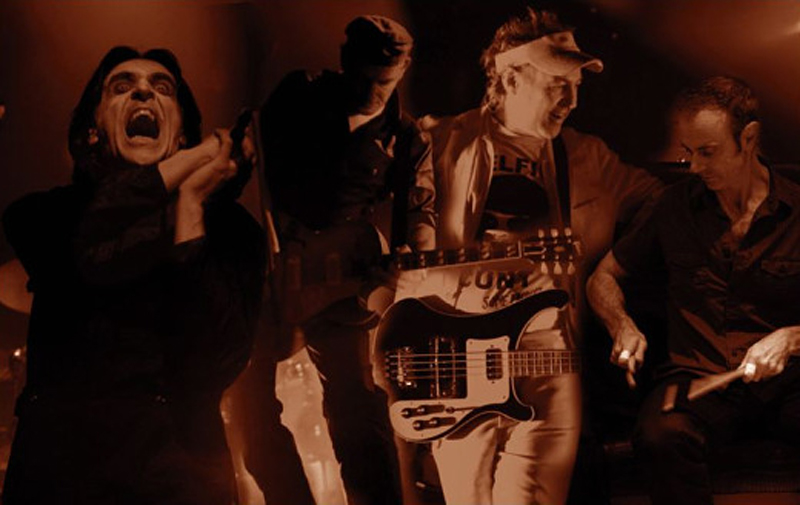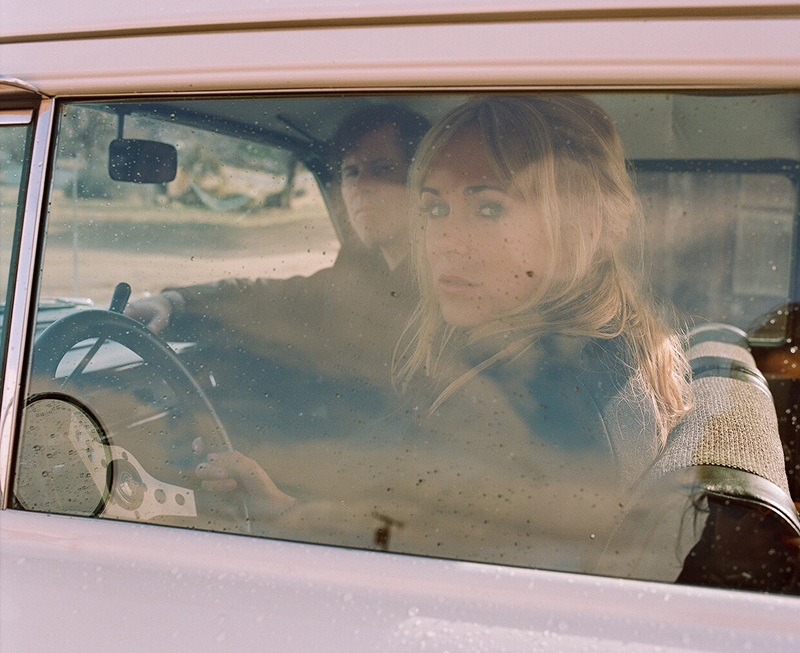“I’m actually quite happy being a very private individual,” Lambchop leader Kurt Wagner muses over the phone from his Nashville home, “so to do something that’s blindly reaching out and communicating really personal things with, you know, with strangers . . . God, that kinda freaks me out!”
The 46-year-old singer-guitarist could be talking about doing interviews; despite the fact that he’s friendly and easygoing, with a deep drawl that’s prone to explosions of laughter, Wagner tends to answer questions in a rather concise and fairly vague manner. But he’s actually talking about his songs—also carefully constructed and deliberately ambiguous—and the act of sharing them.
“I play around on the borderline of letting it all hang out and keeping things to myself,” he chuckles. “Usually, I find some way to get things across without giving too much away.”
Wagner’s taken that approach on nearly all of Lambchop’s nine studio albums over the past dozen years, but perhaps never as perfectly or as powerfully as on the band’s latest, the exquisitely crafted, aptly titled Damaged. There’s a palpable sense of ache and misery across its 10 tracks, thanks to wordplay that’s vivid even when the narratives and designs themselves prove slippery.
Least elusive are the opening and closing numbers. In “Paperback Bible” (inspired by a real-life Tennessee radio show where people call in to swap assorted stuff), Wagner sings—in his arrestingly paced baritone, not unlike Nick Cave, Tindersticks’ Stuart Staples, or (smog)’s Bill Callahan—about a nonworking 27-inch color TV (“An RCA ’cause I need the parts”), a 4-month-old puppy, a prom dress (“Slit above the knee if you’re looking for something perfect for that student”), handguns, and that Bible; the juxtaposition of these wanted and unwanted items paints an evocative portrait of middle-American values, desires, and disillusionment. In bilious capper “The Decline of Country and Western Civilization,” meanwhile, the narrator rattles off the things that are “looking ugly to me.” First up is Nathan Bedford Forrest, the Confederate general and first grand wizard of the Ku Klux Klan, who’s “the featured artist in the devil’s chorus”; just a few lines later, it’s “your Pitchfork I-rock saviors,” with the singer dryly adding, “I’m sorry, I still prefer Jim Nabors.”
The album’s innards are murkier. Its songs are ostensibly about cracked or crumbling relationships, though reasons and resolutions aren’t provided—only the distress comes through clearly in its troubled scenes. The theme of communication, or lack thereof, often surfaces: “Voices cried in silence or crept stealthily away/Left shimmering with rigid lips compressed,” Wagner utters in “Prepared [2].” So does weary resignation: Singing from a woman’s perspective in “I Would Have Waited Here All Day,” Wagner coolly intones, “You’re dripping wet from a midday shower/Soon you’ll be drying off your dick/I want to be romantic about it/But there’s really not much more to it,” later adding, “My favorite hour of any day/Is the one before you get home.”
Musically, Damagedis also hard to pin down. Though the album occasionally sports the rootsy twang that gets Lambchop filed in the alt-country section, the band— 18 members strong in the studio—mainly creates richly layered, symphonic soul-pop, teeming with piano, strings, horns, and odd little electronics and found-sound noises floating in and out. The compositions are full but not stuffed, and gentle, even uplifting enough to provide a fascinating foil to Wagner’s oft-aggrieved lyrics.
Though he’s hesitant to talk about it very much, Wagner’s recent bout with prostate cancer (which was detected early and successfully treated)—plus an operation to fix his jaw, which had been partially destroyed by a cyst (doctors had to use bone from his hip to make repairs)—played a role in the disc’s downcast mood. Damaged also took a long time to make, by Lambchop standards, but not just because of those maladies. Wagner says that unlike with 2004’s simultaneously released full-lengths, Aw C’mon and No, You C’mon—albums that came out of his self- assigned exercise of writing a song per day (“There were a lot of really shitty ones, and a couple good ones,” he laughs)—he sometimes spent as much as three months to get just one of the new songs fully formed.
“I remember when I was painting, I used to spend maybe a year on the same painting,” says Wagner, who holds a graduate degree in fine arts. “It was that sort of time and close attention to the object that you’re creating that I enjoyed as much as anything. So I guess now I’m just trying to spend a lot longer on albums and trying to get closer to the songs.”
And closer to his fans, and strangers, as well: He’s more willing these days to bring Lambchop—in its current 12-piece configuration, including a string quartet—out on the road for extended tours.
“I think doing the shows is essential to the life of a band. Me, as a writer, whatever, I can amuse myself in the studio. But, I mean, it really is something special that happens when you play together live and have a real audience in front of you responding to your songs. I do believe those experiences are kind of precious.”








